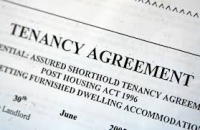
Yesterday the second reading of the tenant fee bill was delivered in the House of Lords outlining the measures the Government is going to take to create a fairer playing field for landlords and tenants in the UK rental sector.
With a focus on unfair letting fees and the requirement for agents to join a client money protection scheme, it will look to help tenants overcome the initial financial barrier of securing a rental property.
Adam Male, Director of Letting at Urban.co.uk, commented:
“Today's progression of the tenant fee bill was a step in the right direction for transparency and professionalism in the lettings sector, but a step in the wrong shoes. It will no doubt see those it aims to penalise recoup lost revenue under another guise at the expense of both landlords and tenants.
The bill is sure to bring protest from much of the traditional lettings market, but the fact of the matter is, they’ve made a rod for their own back through the exploitation of tenants via below the belt fee charging.
Our previous research found that traditional letting agents were getting away with extortionate charges such as £200 to change a surname on an agreement, £40 if you weren’t married to your significant other or an additional £90 to move in on a Saturday.
The unfortunate reality is that this isn't the solution and these bad apple agents will always find a way around the introduction of restrictive legislation.
The silver lining is that tenants will at least have more stability and security around their financial commitments and won’t be at the mercy of immoral, out of the blue fee charges.”
ABC Note:
A bill must go through the following steps (in both Houses) to become law:
- First reading: Bill arrives.
- Second reading: Main debate on purpose and key areas of the bill.
- Committee stage: Detailed line by line scrutiny of the text with amendments (proposed changes). Votes may take place to decide whether to make the changes.
- Report stage: Further examination of the text. More amendments are debated and further votes take place to decide whether to make the changes.
- Third reading: A ‘tidying up’ stage. Final chance for amendments and votes.
- Each House considers the other’s amendments.
- Royal Assent: When both Houses agree the final content, a bill is approved by the Queen and becomes a law or ‘Act of Parliament’.
Amendments (changes)
Lists of amendments are suggested, or ‘tabled’, by members and discussed in detail during committee, report and third reading stages. The ‘marshalled list’ shows each amendment in the order it affects the text of the bill. Amendments are often grouped by theme before each debate.
After an amendment has been discussed the government signals whether it will accept or reject the proposal. If the government does not intend to accept the amendment the member who suggested it can either withdraw it or call a division (vote).
ABC Comment, have your say below:

Leave a comment
Make sure you enter all the required information, indicated by an asterisk (*). HTML code is not allowed.
Join
FREE
Here










